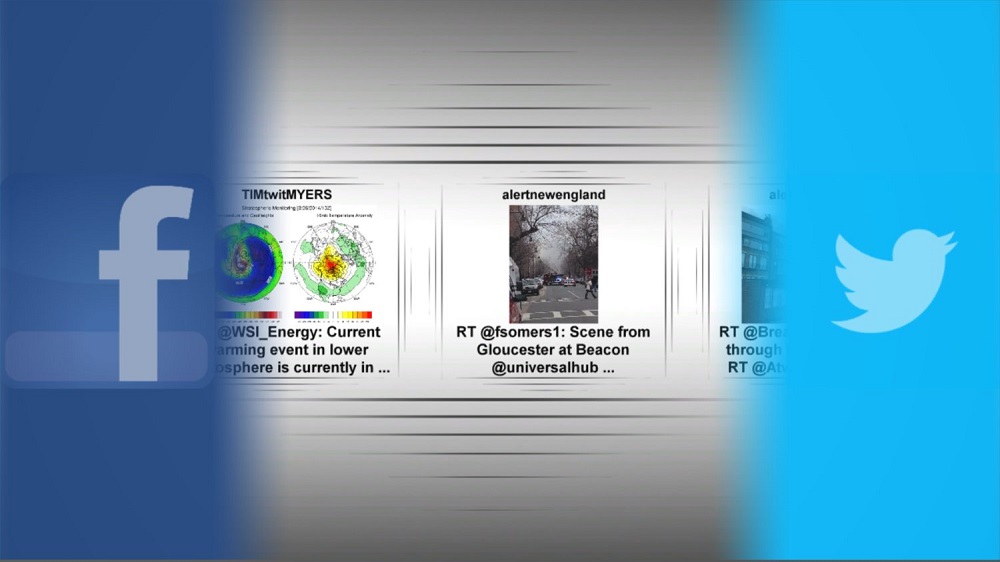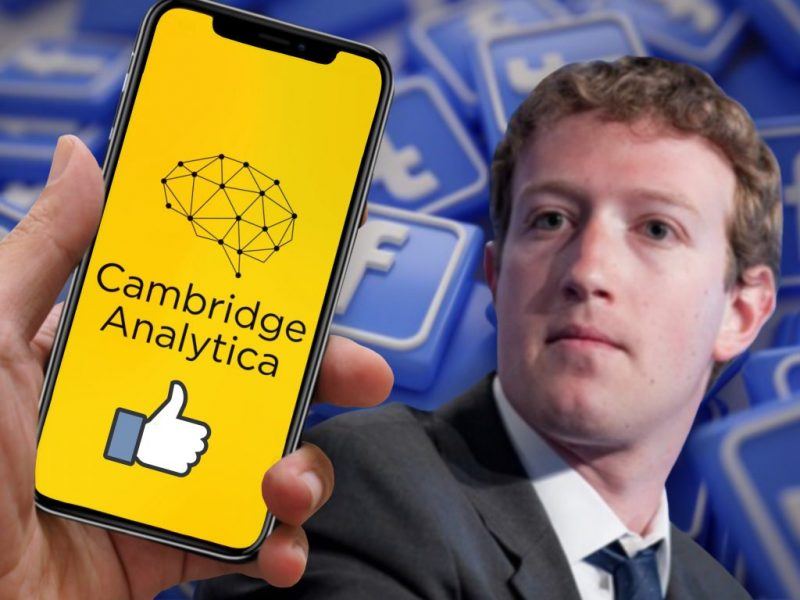
Facebook CEO and co-founder Mark Zuckerberg has already uploaded his seven-pay prepared testimony for the Congressional hearing on Wednesday which you can see just below. It begins with an apology who admits that Facebook failed to take a broad enough view with its responsibilities.
[pdf-embedder url=”https://movietvtechgeeks.com/wp-content/uploads/2018/04/mark-zuckerberg-april-congressional-testimony-2018.pdf” title=”mark zuckerberg april congressional testimony 2018″]
You can expect there to be plenty of heated questions from lawmakers for Zuckerberg as this has been an ongoing issue and source of irritation for them.
Social media, most notably Facebook is under fire due to data privacy issues. It’s truly ironic at how we surrender our daily lives to Facebook, Twitter, Instagram, YouTube and others yet we worry about how these platforms use the data we share with them. We share our thoughts and emotions on them including what we had for dinner. Now we worry about where it all goes. Now what we users should always remember is that these guys are in business and their business is you. Most of what they do is free, and they don’t want our money; what they want is the next valuable thing. Our personal information which at the very least, is our email address. Nowadays they also want our phone numbers for additional security in the form of two-factor authentication.
Now, how valuable is that data to them? More valuable than most of us think when we first signed on as everyone later found out during the Facebook-Cambridge Analytica scandal and other scandals before it. Did you think that joining and playing Mafia Wars, Farmville, Candy Crush were completely free despite your resolve not to involve yourself in in-game transactions? Heck no. Except for air, there’s really no such thing as completely free anymore. Heck, even clean air is no longer free. Just ask the Lorax. Your data and your friends’ data gets shared through those games to businesses that intend to sell you something at the very least. Creepy but not that harmful. But not everyone has business in mind.
Social media connects us in ways that’s unthinkable a few decades ago. Aside from being connected with friends, family, colleagues, strangers, bullies, trolls and stalkers, we’re flooded with more information than we know what to do with. Social media even helps us shop, provides news and updates on the weather. Social media will tell you how severe the weather is going to be or say that a ballistic missile is on its way to your city. Social media by now is almost indispensable. Take it away and the world gets thrust back to the stone age. More like the 80s actually which isn’t half-bad. If you’re an adult and not connected to LinkedIn at least, you’d be considered a hermit or at worse a weirdo. Social media has become a societal necessity because the need to communicate is deeply ingrained in humans. It’s basically a utility and utilities require some heavy responsibilities.
Cleanliness – we as customers, (yes, we are their customers) want the best possible experience from any product. We want them fast, we want them to be easy to use, and we want them clean, free from bugs and free of undesirable content. Now we have to accept that there will always be ads. They will creep up once in a while, and they will always be stuff that you’ve expressed interest in. You’ve probably already bought it, but an ad about it will haunt you for a couple of weeks. But what about stuff you’re not remotely interested in? Spam is no longer exclusive to email, and they’ll show up in your feeds every now and then. Social media platforms need to be responsible to its users to clean up the feeds themselves or give users the tools to do so.
Facebook and Twitter have been doing that for some time now. I am unfortunately a victim of a poorly implemented anti-spam feature by Facebook which prevented me from posting stuff that its AI couldn’t distinguish from inappropriate content. Facebook has one but woefully needs more work. Twitter, on the other hand, implemented new rules that prevent users from block tweeting, which makes some sense since we don’t need to see the same tweet or retweet several times during the day. Retweets though plays a big factor at how popular something is. Retweets by the same person of his/her own tweets aren’t.
Then there’s offensive and inappropriate content. Social media should also be responsible for it. Now, this is a bit of a slippery slope since offense can be subject to perspective. One cultural aspect may be offensive and inappropriate to some might be completely okay with others. Eating fermented auk or eating balut offends some people but is culturally significant to others. Successive cussing for some is unacceptable but completely fine in other places. There’s also that freedom of speech and expression thing to contend with. Now social media platforms can be deeply rooted in the beliefs of who created them and those beliefs can be ingrained in their respective rules, guidelines and usage policies. What these guys need to do is make them loud and clear to the users as well as adapt those guidelines depending on territory and make them loud and clear to the users. They need to implement these rules as well and hopefully, with sound AI and intelligent objective humans.
Security – now this is where Facebook fell so flat on its face. Technically, it’s not Facebook, but they should be more careful on who they share data to, and as previously mentioned make their guidelines louder and clearer. Cambridge Analytica decided to disregard those rules on data sharing and usage and helped Trump ascend to the presidency, much to the chagrin of half of America. The Russians are no longer alone. This scandal basically means that the data was stolen and not willingly shared. For most, that’s unacceptable. Before the scandal, only Facebook knows how much data is shared with websites and apps that use their API, if they know at all. Sadly, we’re also to blame, but users or customers only want their products to be usable out of the box, manuals, instructions and warranties be damned. Someone sells you a safe with plexiglass windows; those had better be windows and not doors. We give them our info, and it’s their job to keep that info in the right hands. In the wake of the scandal, Facebook has enacted changes to make it easier for users to opt out of data sharing as well as enacted stricter security as to what information apps can be privy to. Users need to be doubly careful what they share or keep out of Facebook altogether. Easier said than done though.
Then there’s that other kind of security. One that actually involves human lives. Some social media platforms are being used to spread hate, terror and sociopathic behavior. Twitter has recently removed over two hundred thousand accounts that they suspect are spreading messages of terrorism. Kudos to Twitter for sacrificing accounts despite its slowly dwindling user base but social media cannot be used to foster terrorism of any sort. However, in the name of security, some social media apps, notably Facebook Messenger was found to be collecting phone records of users. Who was called, the time and duration. This is a serious breach of security in Facebook’s part, something they said they have since cleaned up. Apparently, there was a setting in the app that stops this, but users hardly know about it. Whether or not you have something to hide, it’s totally Orwellian.
Integrity – social media platforms have since expanded its scope to be a source of news and business. Facebook is no longer exclusive to catching up with friends and family, but its newsfeed has come to include actual news, entertainment, and general knowledge. The problem here is that much of the content does not come from true journalism sources but from various web blogs. There’s much risk that the news may not be completely true, are lacking in accuracy and detail and are outright lies and propaganda. Facebook has previously come under fire for spreading fake news during election campaigns not just in the US but in other countries. Social media has become so big that it has become a major influencer in countries’ political affairs sparking dissension, rebellion, and revolutions. It’s no small matter at all. Social media platforms need to take responsibility for the spread of illicit content. With the massive number of users, how does one know whether a shared news video or article is fake news or not? It’s not like Facebook or YouTube has hordes content checkers in their employ. The best bet is to use AI. Question is, is their AI advanced enough to handle fake news especially ones sprinkled with white lies? Unfortunately, no and they have to rely on possibly biased (religious/cultural/political) and un-objective individuals to weed out content.
Strange that after telling someone who you slept with the night before, or shared an intimate photo or two, we worry about where our email address and phone numbers go. It’s because we should. These two details can go a long way in very capable hands. Social media platforms can stay in business, share that data with other businesses as we don’t mind getting an ad for a toaster or two. But they must be responsible for everyone joining their platforms and need to be wary of anyone who might abuse them. They must ensure that the data we share with them do not fall into the wrong hands. They need to be responsible for our safety and our well-being because without us, the users, they’re nothing. One big mistake and sites like Facebook can end up being the next MySpace. We pay them to serve and protect us or at least be responsible. With our data.


